
10 Facts & Stats About Sexual Harassment in the Workplace
While the height of the #MeToo era has quieted down, sexual harassment has not stopped. Many people continue to experience harassment every day, including at their place of work, so there is a need to continue highlighting its prevalence. By being aware of the following statistics, we can continue to improve workplace policies and hold harassers accountable.

This blog contains affiliate links, meaning I may receive a small commission (at no cost to you) if you subscribe or buy something through the links I share. I only share links to products or services that I use myself or absolutely love!
1. The restaurant industry, or “accommodation and food services”, is the industry with the highest rates of reported sexual harassment
The EEOC reports that 25% of all claims come from the service industry.
In the hospitality industry, sexual harassment can stem from multiple parties - coworkers, managers, and customers. The “customer is always right” attitude can unfortunately lead to customers taking advantage of staff. Servers’ reliance on tips is another factor that can lead to the dismissal of harassment from customers. Not only that but a reported 75% of sexual harassment victims experience retaliation after reporting the incident, which discourages others to come forward.
One silver lining is that restaurant owners can be held responsible for customer harassment. Employers have a duty to protect their employees from harm, as proven in a 1998 case against Pizza Hut. Unfortunately, there are still barriers to reporting the harassment and filing a lawsuit, such as the financial burden and fear of retaliation.
2. The majority of sexual harassment incidents go unreported.
The EEOC estimates that only 6-13% of sexual harassment incidents are reported. In addition, a 2019 survey by the Harassment-Free Workplace Project found that 70% of those who experienced sexual harassment in the workplace did not report it. This hesitation to report is often due to fear of retaliation, fear of not being believed, or uncertainty about what constitutes harassment.
Unfortunately, if harassment goes unreported, nothing can be done. Reporting is key.
3. Washington D.C. has the highest rate of sexual harassment claims of all the United States
Although other states have higher overall numbers of harassment reports, D.C. takes the lead when taking population into account. Over a 25-year period, the EEOC received 1,601 sexual harassment reports from Washington D.C., where the average population is 668,791, giving it a rate of 239.4.
In contrast, Massachusetts had the lowest rate of sexual harassment reports with a rate of 18.57 over the same year period.
4. Approximately one-third of women will experience sexual harassment in the workplace.
According to a 2019 study, 34% of women reported having experienced sexual harassment at work. This number is alarmingly high and highlights the need for increased awareness and action on this issue. Sexual harassment towards women in the workplace often leads to employees quitting or not rising into leadership positions, ultimately stunting women’s career growth.
5. Sexual harassment can have a significant impact on mental health.
According to a 2017 study by the National Women's Law Center, victims of sexual harassment in the workplace are more likely to experience anxiety, depression, and other mental health problems. Psychologists say that workplace harassment can even lead to post-traumatic stress disorder.
6. Workplace policies and procedures are crucial in addressing and preventing sexual harassment.
If an employer provides clear guidelines for how to report sexual harassment, that’s a great first step in encouraging employees to come forward. What’s even better is having clear guidelines that prohibit retaliation. The more that people feel their employers are on their side, the more comfortable they will feel speaking up.
7. Overall, sexual harassment reports to the EEOC are decreasing.
We don’t know why, but keep in mind, it’s just the reports that are decreasing. This doesn’t tell us whether sexual harassment itself is decreasing – people may just be afraid to come forward. From 1997 to 2021, sexual harassment reports to the EEOC decreased by over half.
8. Men get sexually harassed at work too.
When most people think of sexual harassment, they often picture a female victim. Although the majority of victims are indeed women, men also experience sexual harassment at work. Many times, a male employee may not even be aware of what constitutes harassment, especially if they haven’t encountered it before. According to a survey, 10% of male employees report experiencing sexual harassment at work.
9. Every state has their own time limit on reporting sexual harassment.
It can be difficult for victims to report harassment right away. After experiencing sexual harassment, many victims experience feelings of shame, confusion, guilt, or depression. While it’s certainly important for victims to take care of their mental health after a serious incident, it’s also good to keep in mind that there’s a time limit on reporting harassment.
The time limit, or statute of limitations, differs by state. You can find your state’s statute of limitations here.
10. It’s illegal for your employer to retaliate against you after reporting sexual harassment.
Despite being illegal, many employers do unfortunately retaliate against employees after they report sexual harassment. Retaliation can include things like having your hours reduced, having your responsibilities diminished, having your pay decreased, or even being terminated.
A shocking 72% of employees who reported sexual harassment experienced some form of retaliation at work, according to a study by the National Women’s Law Center. This highlights the economic impact of sexual harassment, which is not talked about enough. Retaliation can really impede an employee’s career growth, and it’s a deterrent to report harassment in the future.
Related Articles
-
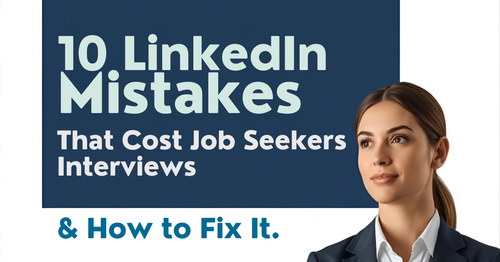
10 LinkedIn Mistakes That Cost Job Seekers Interviews (How to Fix It)
Guest blogger outlines how to avoid these LinkedIn mistakes to drastically improve your chances of being noticed, whether you’re actively job hunting or just trying to grow your professional presence.
-
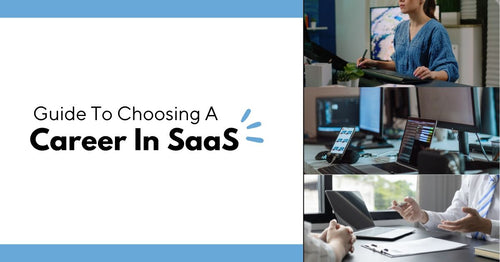
Guide To Choosing A Career In SaaS
Thinking about a career in SaaS? Guest blogger Jacob Wickett shares top roles, key skills, and how to break into this fast-growing industry.
-
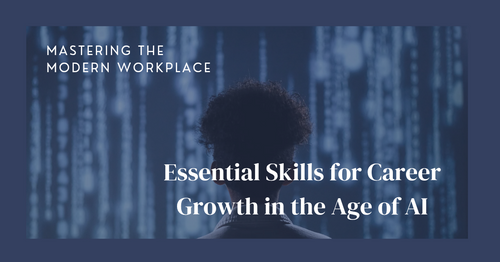
Mastering the Modern Workplace: Essential Skills for Career Growth in the Age of AI
Guest blogger Sadie Smith shares a comprehensive guide to help professionals navigate unprecedented changes driven by technological advancement with confidence.
-

Navigating Your Career Path with a Family Nurse Practitioner Degree Program
Guest blogger Sadie Smith reveals how strategic planning in your healthcare career broadens your impact on patient care and community health.
-

Career Transitions: Navigating Your Path to Success in Healthcare and Beyond
Guest blogger Sadie Smith shares how to leverage your existing skills and experience while pursuing new career opportunities in healthcare and other industries.
-

Breaking Barriers: A Guide to Empowering Women in Manufacturing Leadership
Guest contributor Sadie Smith shares this comprehensive guide on how women can reshape the manufacturing industry landscape with actionable insights.
-

Navigating An Evolving Job Market With Strategies For Success
To thrive in a dynamic job market, you need to continuously adapt your job search strategies. Stay informed and flexible to position yourself for success.
-
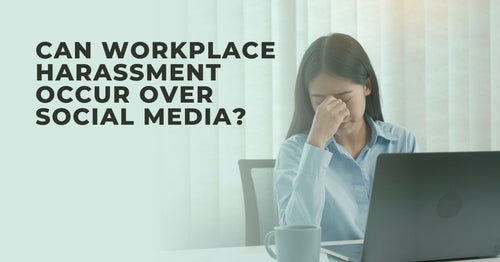
Can Workplace Harassment Occur Over Social Media?
Guest blogger Caren Sainz breaks down how to set clear boundaries and seek legal assistance if you're a victim of workplace harassment over social media.
-

4 Personal Assistant Interview Questions and Answers
Guest blogger Liza Griffen, co-founder of Tyler Griffen, equips you with a deep understanding of typical interview questions and practical answers to help you showcase your skills effectively whether you're aiming to impress in your first personal assistant role or looking to step up in your career.
-

Crack Your Dream Company Interview
Guest contributor Nandkishore Rathi shares practical tips, strategies, and insightful advice from career experts to help you shine during written and verbal interviews.
-
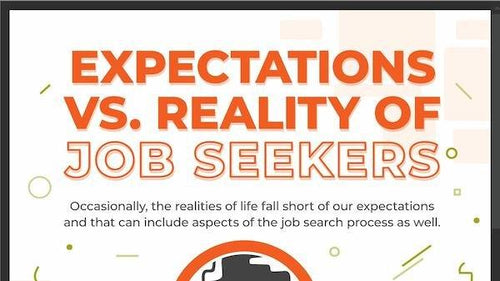
Exploring The Realities Of Job Hunting (Infographic)
Guest contributor Joseph Matalone delves into common expectations in job seeking and the contrasting realities.
-

Don't Panic: 15 Ways To Prepare For A Video Interview
Guest blogger Daniel Boyce with Aware Recruiter delves into 15 actionable steps to prepare you for a stellar video interview experience whether you're a seasoned professional or just stepping into the job market.
-
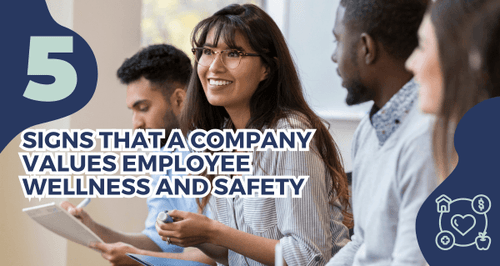
5 Signs That A Company Values Employee Wellness And Safety
Guest blogger Sharon Feldman shares how asking questions about wellness and safety in your interview could give you insight into a company’s values.
-

Can An Employer Fire You For Being Sick?
Many employers can terminate an employee for falling sick frequently. Guest blogger Natalie Padilla shares all you need to know regarding being fired by an employer.
-
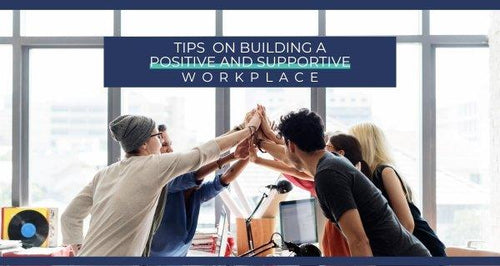
Tips On Building A Positive And Supportive Workplace
Guest blogger Adam Blacksmith shares how to embrace communication, celebrate diversity, and empower your team for success by fostering a positive and supportive workplace culture.
-

AI: Transforming Networking, Interviews, and Careers
Guest Author, Dean Fankhauiser. discusses how AI is revolutionizing networking, interviewing, career planning, and professional advancement.
-

Preparing for Different Interview Formats: Phone, Video, and In-Person
Interview Coach Ellie Hoekman shares specific preparation steps for phone, video, and in-person interviews.
-

Negotiating A Competitive Salary
Guest blogger Rohan Singh shares strategies for negotiating a fair salary that reflects your worth and fulfills your goals.
-

Can My Employer Ask Why I’m Taking A Sick Day?
Guest blogger Samantha Larson shares whether your employer has the right to ask you why you are sick and how much information they are entitled to when you take a sick day at work.
-

The Benefits of Coaching in the Workplace
Guest blogger, William Powell, shares some of the concrete examples of the benefits associated with employee coaching.
-

The Ultimate Temping Guide for Beginners
Guest blogger Auria Heanley with Oriel Partners shares insight into what a temp job is and what to expect in order to make the most of a new job opportunity.
-

High Paying Career Paths After Learning Python
Guest blogger Rose Young with Codebasics.io shares some of the promising career paths you can explore after learning Python programming.
-

How To Ace Your Interview With A Staffing Agency
Guest blogger William Powell shares how to prepare adequately for an interview with a recruiting agency to increase your chances of landing your dream job.
-

How Do You Know When It's Time To Quit Your Job?
Guest blogger Katie Meyers shares when quitting your job is the right thing and how to go about it.
-

5 Things You Need To Know About Job Interviews To Succeed
Guest blogger Marcus Ralph shares 5 tips on what you can do before a job interview to be best prepared to make a solid first impression and land the job.


























